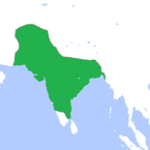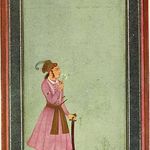Ruled From :
1526
Ruled To :
1857
Picture :

Details :
Mughal Dynasty started with Timurid prince and ruler from Turkistan name Zahiriddin Muhammad Babur in the early 16th century. During the 17th and 18th century the Mughal rule covered most of the present Indian subcontinent. The dynasty lasted till the rebellion of 1857 after which British Raj took over. Below is the list of the Mughal kings:
| Babur |
1526 – 1530 |
| Humayun |
1530 – 1540, 1555 – 1556 |
| Akbar |
1556 – 1605 |
| Jahangir |
1605 – 1627 |
| Shahryar |
1627 – 1628 |
| Shah Jahan |
1628 – 1658 |
| Aurangzeb |
1658 – 1707 |
| Muhammad Azam Shah |
1707 – 1707 |
| Bahadur Shah I |
1707 – 1712 |
| Jahandar Shah |
1712 – 1713 |
| Farrukhsiyar |
1713 – 1719 |
| Rafi ud-Darajat |
1719 – 1719 |
| Shah Jahan II |
1719 – 1719 |
| Muhammad Shah |
1719 – 1748 |
| Ahmad Shah Bahadur |
1748 – 1754 |
| Alamgir II |
1754 – 1759 |
| Shah Jahan III |
1759 – 1759 |
| Shah Alam II |
1760 – 1806 |
| Jahan Shah IV |
1788 – 1788 |
| Akbar II |
1806 – 1837 |
| Bahadur Shah II |
1837 – 1857 |
Famous For :
Being the Emperor of India for almost 50 years
Time of Rule :
1556 CE to 1605 CE
Picture :

Details :
Abu'l-Fath Jalal-ud-din Muhammad Akbar was known as Akbar, was a Mughal king from 1556 to 1605.
A strong personality and a successful general, Akbar gradually enlarged the Mughal Empire to include nearly all of the Indian Subcontinent north of the Godavari river. His power and influence, however, extended over the entire country because of Mughal military, political, cultural, and economic dominance. To unify the vast Mughal state, Akbar established a centralised system of administration throughout his empire and adopted a policy of conciliating conquered rulers through marriage and diplomacy. To preserve peace and order in a religiously and culturally diverse empire, he adopted policies that won him the support of his non-Muslim subjects. Eschewing tribal bonds and Islamic state identity, Akbar strove to unite far-flung lands of his realm through loyalty, expressed through an Indo-Persian culture, to himself as an emperor who had near-divine status.
